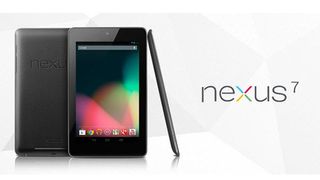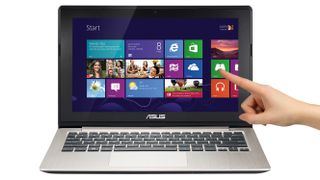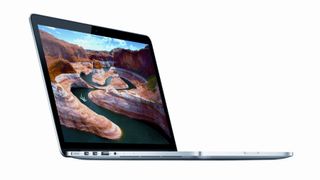Year in tech: highs and lows of 2012
The year in phones, tablets, computing, TV and gaming

Can Surface make an impact?
And then there was Surface and the cut-down version of Windows 8 that it runs, Windows RT. This is Microsoft's reaction to the iPad, which is essentially Windows 8 on ARM. Surface has been a success in terms of profile but it doesn't seem to be translating it to sales, with everybody acknowledging £399 ($499) is too much for a stripped-back version of Windows 8.
Despite Microsoft reportedly upping production late in the year, it boasts lovely hardware but a poor app ecosystem at the moment. With Windows RT you see, desktop apps aren't supported, just apps from the Windows Store. As time goes on it seems more like Windows RT is a dead duck.
Onto full-blown Windows 8 for Intel and AMD devices then – this certainly is a seismic shift for Windows as Microsoft. We saw a lot more touch-based hardware than we were expecting to and more exciting Windows hardware continues to appear by the week.
Surface isn't selling in numbers, while Intel is surely rubbing its hands with glee as it continues to push laptops hard on price. The Intel-powered Surface Pro is due in January, but for a high end price – rather 'cheaper' is where laptops are heading. We've seen laptops like the Asus VivoBook S200 that combine portability, Windows 8 and a touchscreen for £450.

Ultrabooks and Apples
2012 was certainly the year of the Ultrabook – these Intel-backed thin and light MacBook Air-equivalents made an impact over the last 12 months (even if sales seem a bit of a mystery), as did touchscreen tech thanks to Windows 8.
Google continues to try and launch Chromebooks (why? And why aren't they Android-based?) – some for as little as £199 – but, like Windows RT, they disappoint with their restricted approach to computing.
Apple trundles on, its Macs continue to succeed, but its sales remain dwarfed by the still-powerful PC. OS X received an iOS-style makeover with version 10.8 Mountain Lion, but it was mainly window-dressing. Still, the hardware impressed. One of its smartest moves was the Hybrid Drive, an innovation on OS X that makes an SSD and traditional hard drive appear as a single storage drive, with oft-used apps transferred to the SSD.
Get daily insight, inspiration and deals in your inbox
Get the hottest deals available in your inbox plus news, reviews, opinion, analysis and more from the TechRadar team.
It also gave us high-resolution retina displays on some MacBook Pro models, something that looks set to give us far better displays across the board.
Apple continued to plead the post-PC message with iOS 6 for iPad and iPhone, but was quite happy to innovate in the Mac space, seemingly missing the point that Macs *are* PCs.

Going beyond the PC
We didn't see a big leap in x86 CPU performance during 2012. We did see Intel launch the 22nm die-drink of its Intel Core processors (codenamed Ivy Bridge). AMD continued struggle and make cheap, decent chips, but it faces serious questions about its future next year despite the performance message of its new Trinity A-Series. AMD has said it will also make ARM chips in future.
Despite the ropey start to ARM-powered PCs, ARM-powered chips will press Intel hard over the coming years. "Is the era of x86 over? Not yet, but maybe soon if the weight of ARM-related processor developments is anything to go by," says our own Jeremy Laird. "One thing's for sure. The desktop CPU war is over."
But 2012 has been more about laying the foundations for a potentially epic 2013. Not epic in the traditional sense of major developments in CPU or graphics technology (though we'll see developments there, too).
But it could well be the year when we see the dissolution of the traditional concept of the PC. In 2012 it wasn't just Apple talking about taking things beyond the PC - even Microsoft is now showing it wants to reinvent PC tech. Every major PC manufacturer turn its attention to tablets; with some remarkably varied results, from convertible laptops to sliders to slates.
